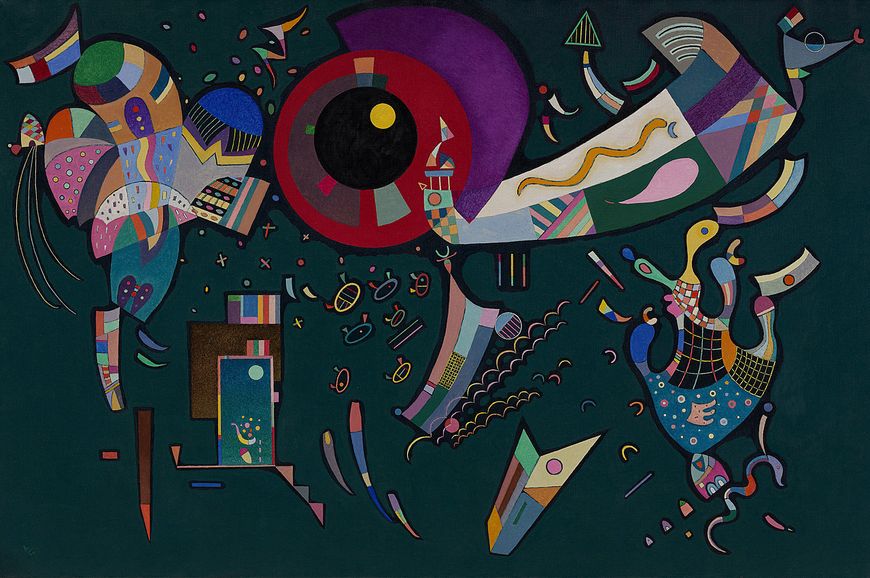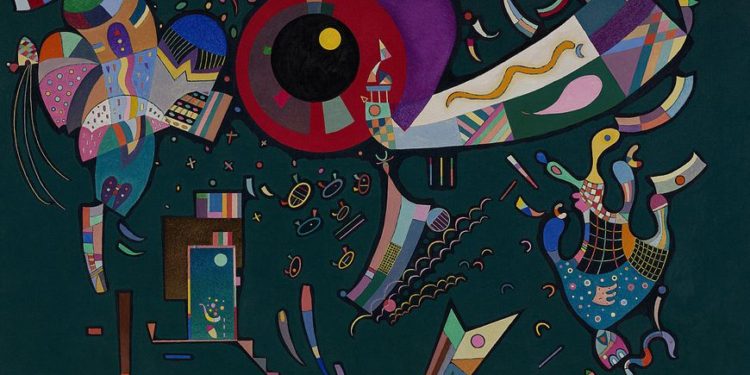“The artist must train not only his eye but also his soul”, was delivered by Vasily Kandinsky, a Moscow-born artist and one of the pioneers of abstract modern art. This credo echoes in all of his non-representative arts that will be exhibited by Guggenheim, New York, from this fall season.
Kandinsky explored interrelation between color and form to result in an aesthetic experience that involved the sight, sound, and emotions of the public. His arts expressed a universal sense of spirituality, through transcending reality into abstract forms. For him, spiritually rich painting is a kind of allusion to sound and emotion because of its unity of sensation.
In the retrospective exhibition Vasily Kandinsky: Around the Circle, Kandinsky’s artworks will be presented in chronologically reverse order, from his late-life paintings to his early career. He has at least three phases of visual explorations. His late phase–biomorphic and geometric forms, is preceded by his early representational paintings and symbolism.
According to the exhibition’s curatorial note, this exhibition begins with Kandinsky’s last phase in France when he was inspired by the natural sciences and the Surrealist movement, also his interest in Russian and Siberia folklore. At that time, he produced organic images resembled embryos, larvae, and invertebrates. The second phase of his art life is Bauhaus and Russian avant-garde influences that made Kandinsky created his geometric and non-concrete paintings. He believed art can revolutionize self and society. The earliest phase was marked by his exploration of color, line, and form while he was living around Munich. Painting, poetry, and stage performance became his main insights.
Kandinsky had many styles of paintings but remained to maintain his view that visual representation is an expression of the “inner necessity” of the artist. Thus, art can connect people across different places, times, ages, and other backgrounds.

Vasily Kandinsky, Around the Circle (Autour du cercle), 1940. Solomon R. Guggenheim Museum, New York, Solomon R. Guggenheim Founding Collection. © 2018 Artists Rights Society (ARS), New York/ADAGP, Paris. https://www.guggenheim.org/artwork/1985
The title of this exhibition Around the Circle is taken from Kandinsky’s painting in 1940. In this painting, Kandinsky combined primary geometric shapes, waves lines, and biomorphic forms such as eye-like and embryo-like shapes. The vibrant colors of this painting bring cheerfulness, hope, and playful vibes. These organic images in colorful scenes remind me of future hope, rebirth, and regeneration.
Kandinsky is not only a remarkable artist but also a wonderful researcher. During the Bauhaus years, he had clipped and saved illustrations of microscopic organisms, insects, and embryos. He also drew his art insights from some important scientific books and encyclopedia, as exemplified in Around the Circle.
Kandinsky’s art and ideas inspired many generations of artists after his lifetime, including the Abstract Expressionists after World War II. His artworks are also remain awe-inspired to people in the contemporary age because its spiritual and eternal quality.
Kandinsky’s paintings, watercolors, and woodcuts can be view on Vasily Kandinsky: Around the Circle at the Guggenheim, from October 8, 2021, to September 5, 2022.


